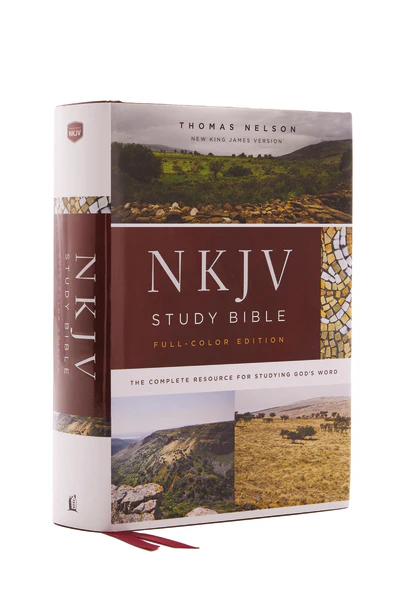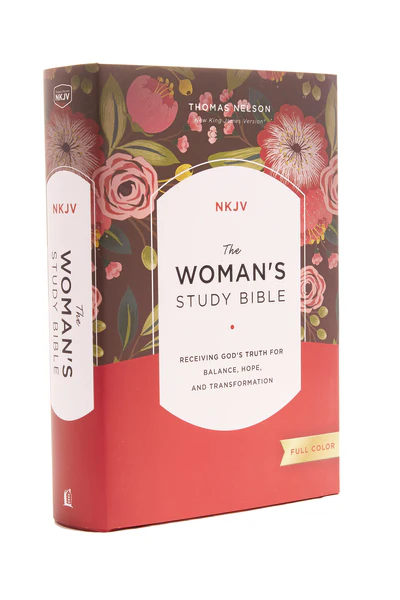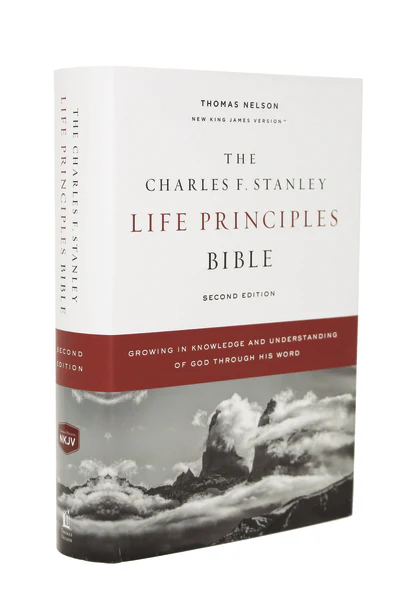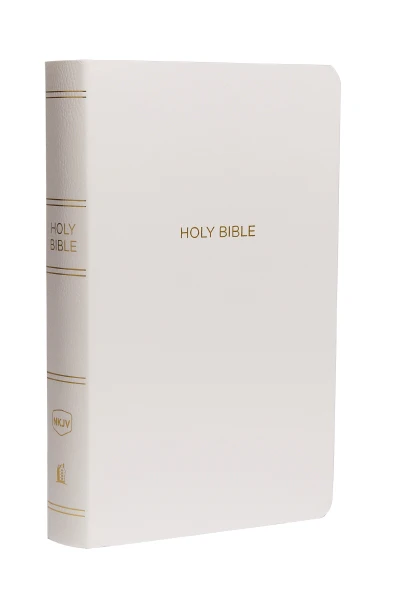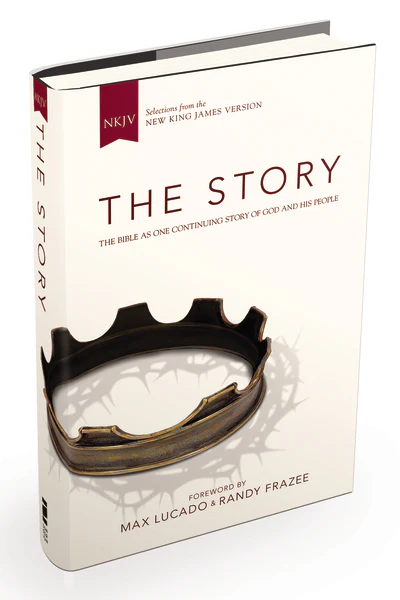Leviticus 21-22
New King James Version
Regulations for Conduct of Priests(A)
21 And the Lord said to Moses, “Speak to the priests, the sons of Aaron, and say to them: (B)‘None shall defile himself for the dead among his people, 2 except for his relatives who are nearest to him: his mother, his father, his son, his daughter, and his brother; 3 also his virgin sister who is near to him, who has had no husband, for her he may defile himself. 4 Otherwise he shall not defile himself, being a [a]chief man among his people, to profane himself.
5 (C)‘They shall not make any bald place on their heads, nor shall they shave the edges of their beards nor make any cuttings in their flesh. 6 They shall be (D)holy to their God and not profane the name of their God, for they offer the offerings of the Lord made by fire, and the (E)bread of their God; (F)therefore they shall be holy. 7 (G)They shall not take a wife who is a harlot or a defiled woman, nor shall they take a woman (H)divorced from her husband; for [b]the priest is holy to his God. 8 Therefore you shall [c]consecrate him, for he offers the bread of your God. He shall be holy to you, for (I)I the Lord, who (J)sanctify you, am holy. 9 The daughter of any priest, if she profanes herself by playing the harlot, she profanes her father. She shall be (K)burned with fire.
10 ‘He who is the high priest among his brethren, on whose head the anointing oil was (L)poured and who is consecrated to wear the garments, shall not (M)uncover[d] his head nor tear his clothes; 11 nor shall he go (N)near any dead body, nor defile himself for his father or his mother; 12 (O)nor shall he go out of the sanctuary, nor profane the sanctuary of his God; for the (P)consecration of the anointing oil of his God is upon him: I am the Lord. 13 And he shall take a wife in her virginity. 14 A widow or a divorced woman or a defiled woman or a harlot—these he shall not marry; but he shall take a virgin of his own people as wife. 15 Nor shall he profane his posterity among his people, for I the Lord sanctify him.’ ”
16 And the Lord spoke to Moses, saying, 17 “Speak to Aaron, saying: ‘No man of your descendants in succeeding generations, who has any defect, may approach to offer the bread of his God. 18 For any man who has a (Q)defect shall not approach: a man blind or lame, who has a marred face or any limb (R)too long, 19 a man who has a broken foot or broken hand, 20 or is a hunchback or a dwarf, or a man who has a defect in his eye, or eczema or scab, or is a eunuch. 21 No man of the descendants of Aaron the priest, who has a defect, shall come near to offer the offerings made by fire to the Lord. He has a defect; he shall not come near to offer the bread of his God. 22 He may eat the bread of his God, both the most holy and the holy; 23 only he shall not go near the (S)veil or approach the altar, because he has a defect, lest (T)he profane My sanctuaries; for I the Lord sanctify them.’ ”
24 And Moses told it to Aaron and his sons, and to all the children of Israel.
The Holiness of the Offerings
22 Then the Lord spoke to Moses, saying, 2 “Speak to Aaron and his sons, that they (U)separate[e] themselves from the holy things of the children of Israel, and that they (V)do not profane My holy name by what they (W)dedicate to Me: I am the Lord. 3 Say to them: ‘Whoever of all your descendants throughout your generations, who goes near the holy things which the children of Israel dedicate to the Lord, (X)while he has [f]uncleanness upon him, that person shall be cut off from My presence: I am the Lord.
4 ‘Whatever man of the descendants of Aaron, who is a (Y)leper or has (Z)a discharge, shall not eat the holy offerings (AA)until he is clean. And (AB)whoever touches anything made unclean by a corpse, or (AC)a man who has had an emission of semen, 5 or (AD)whoever touches any creeping thing by which he would be made unclean, or (AE)any person by whom he would become unclean, whatever his uncleanness may be— 6 the person who has touched any such thing shall be unclean until evening, and shall not eat the holy offerings unless he (AF)washes his body with water. 7 And when the sun goes down he shall be clean; and afterward he may eat the holy offerings, because (AG)it is his food. 8 (AH)Whatever dies naturally or is torn by beasts he shall not eat, to defile himself with it: I am the Lord.
9 ‘They shall therefore keep (AI)My [g]ordinance, (AJ)lest they bear sin for it and die thereby, if they profane it: I the Lord sanctify them.
10 (AK)‘No outsider shall eat the holy offering; one who [h]dwells with the priest, or a hired servant, shall not eat the holy thing. 11 But if the priest (AL)buys a person with his money, he may eat it; and one who is born in his house may eat his food. 12 If the priest’s daughter is married to an outsider, she may not eat of the holy offerings. 13 But if the priest’s daughter is a widow or divorced, and has no child, and has returned to her father’s house as in her youth, she may eat her father’s food; but no outsider shall eat it.
14 ‘And if a man eats the holy offering unintentionally, then he shall restore a holy offering to the priest, and add one-fifth to it. 15 They shall not profane the (AM)holy offerings of the children of Israel, which they offer to the Lord, 16 or allow them to bear the guilt of trespass when they eat their holy offerings; for I the Lord sanctify them.’ ”
Offerings Accepted and Not Accepted
17 And the Lord spoke to Moses, saying, 18 “Speak to Aaron and his sons, and to all the children of Israel, and say to them: (AN)‘Whatever man of the house of Israel, or of the strangers in Israel, who [i]offers his sacrifice for any of his vows or for any of his freewill offerings, which they offer to the Lord as a burnt offering— 19 (AO)you shall offer of your own free will a male without blemish from the cattle, from the sheep, or from the goats. 20 (AP)Whatever has a defect, you shall not offer, for it shall not be acceptable on your behalf. 21 And (AQ)whoever offers a sacrifice of a peace offering to the Lord, (AR)to fulfill his vow, or a freewill offering from the cattle or the sheep, it must be perfect to be accepted; there shall be no defect in it. 22 (AS)Those that are blind or broken or maimed, or have an [j]ulcer or eczema or scabs, you shall not offer to the Lord, nor make (AT)an offering by fire of them on the altar to the Lord. 23 Either a bull or a lamb that has any limb (AU)too long or too short you may offer as a freewill offering, but for a vow it shall not be accepted.
24 ‘You shall not offer to the Lord what is bruised or crushed, or torn or cut; nor shall you make any offering of them in your land. 25 Nor (AV)from a foreigner’s hand shall you offer any of these as (AW)the bread of your God, because their (AX)corruption is in them, and defects are in them. They shall not be accepted on your behalf.’ ”
26 And the Lord spoke to Moses, saying: 27 (AY)“When a bull or a sheep or a goat is born, it shall be seven days with its mother; and from the eighth day and thereafter it shall be accepted as an offering made by fire to the Lord. 28 Whether it is a cow or ewe, do not kill both her (AZ)and her young on the same day. 29 And when you (BA)offer a sacrifice of thanksgiving to the Lord, offer it of your own free will. 30 On the same day it shall be eaten; you shall leave (BB)none of it until morning: I am the Lord.
31 (BC)“Therefore you shall keep My commandments, and perform them: I am the Lord. 32 (BD)You shall not profane My holy name, but (BE)I will be [k]hallowed among the children of Israel. I am the Lord who (BF)sanctifies you, 33 (BG)who brought you out of the land of Egypt, to be your God: I am the Lord.”
Footnotes
- Leviticus 21:4 Lit. master or husband
- Leviticus 21:7 Lit. he
- Leviticus 21:8 set him apart
- Leviticus 21:10 In mourning
- Leviticus 22:2 keep themselves apart from
- Leviticus 22:3 defilement
- Leviticus 22:9 charge
- Leviticus 22:10 As a visitor
- Leviticus 22:18 brings his offering
- Leviticus 22:22 running sore
- Leviticus 22:32 treated as holy
Leviticus 25
New King James Version
The Sabbath of the Seventh Year(A)
25 And the Lord spoke to Moses on Mount (B)Sinai, saying, 2 “Speak to the children of Israel, and say to them: ‘When you come into the land which I give you, then the land shall (C)keep a sabbath to the Lord. 3 Six years you shall sow your field, and six years you shall prune your vineyard, and gather its fruit; 4 but in the (D)seventh year there shall be a sabbath of solemn (E)rest for the land, a sabbath to the Lord. You shall neither sow your field nor prune your vineyard. 5 (F)What grows of its own accord of your harvest you shall not reap, nor gather the grapes of your untended vine, for it is a year of rest for the land. 6 And the sabbath produce of the land shall be food for you: for you, your male and female servants, your hired man, and the stranger who dwells with you, 7 for your livestock and the beasts that are in your land—all its produce shall be for food.
The Year of Jubilee
8 ‘And you shall count seven sabbaths of years for yourself, seven times seven years; and the time of the seven sabbaths of years shall be to you forty-nine years. 9 Then you shall cause the trumpet of the Jubilee to sound on the tenth day of the seventh month; (G)on the Day of Atonement you shall make the trumpet to sound throughout all your land. 10 And you shall consecrate the fiftieth year, and (H)proclaim liberty throughout all the land to all its inhabitants. It shall be a Jubilee for you; (I)and each of you shall return to his possession, and each of you shall return to his family. 11 That fiftieth year shall be a Jubilee to you; in it (J)you shall neither sow nor reap what grows of its own accord, nor gather the grapes of your untended vine. 12 For it is the Jubilee; it shall be holy to you; (K)you shall eat its produce from the field.
13 (L)‘In this Year of Jubilee, each of you shall return to his possession. 14 And if you sell anything to your neighbor or buy from your neighbor’s hand, you shall not (M)oppress one another. 15 (N)According to the number of years after the Jubilee you shall buy from your neighbor, and according to the number of years of crops he shall sell to you. 16 According to the multitude of years you shall increase its price, and according to the fewer number of years you shall diminish its price; for he sells to you according to the number of the years of the crops. 17 Therefore (O)you shall not [a]oppress one another, (P)but you shall fear your God; for I am the Lord your God.
Provisions for the Seventh Year
18 (Q)‘So you shall observe My statutes and keep My judgments, and perform them; (R)and you will dwell in the land in safety. 19 Then the land will yield its fruit, and (S)you will eat your fill, and dwell there in safety.
20 ‘And if you say, (T)“What shall we eat in the seventh year, since (U)we shall not sow nor gather in our produce?” 21 Then I will (V)command My blessing on you in the (W)sixth year, and it will bring forth produce enough for three years. 22 (X)And you shall sow in the eighth year, and eat (Y)old produce until the ninth year; until its produce comes in, you shall eat of the old harvest.
Redemption of Property
23 ‘The land shall not be sold permanently, for (Z)the land is Mine; for you are (AA)strangers and sojourners with Me. 24 And in all the land of your possession you shall grant redemption of the land.
25 (AB)‘If one of your brethren becomes poor, and has sold some of his possession, and if (AC)his redeeming relative comes to redeem it, then he may redeem what his brother sold. 26 Or if the man has no one to redeem it, but he himself becomes able to redeem it, 27 then (AD)let him count the years since its sale, and restore the remainder to the man to whom he sold it, that he may return to his possession. 28 But if he is not able to have it restored to himself, then what was sold shall remain in the hand of him who bought it until the Year of Jubilee; (AE)and in the Jubilee it shall be released, and he shall return to his possession.
29 ‘If a man sells a house in a walled city, then he may redeem it within a whole year after it is sold; within a full year he may redeem it. 30 But if it is not redeemed within the space of a full year, then the house in the walled city shall belong permanently to him who bought it, throughout his generations. It shall not be released in the Jubilee. 31 However the houses of villages which have no wall around them shall be counted as the fields of the country. They may be redeemed, and they shall be released in the Jubilee. 32 Nevertheless (AF)the cities of the Levites, and the houses in the cities of their possession, the Levites may redeem at any time. 33 And if a man purchases a house from the Levites, then the house that was sold in the city of his possession shall be released in the Jubilee; for the houses in the cities of the Levites are their possession among the children of Israel. 34 But (AG)the field of the common-land of their cities may not be (AH)sold, for it is their perpetual possession.
Lending to the Poor
35 ‘If one of your brethren becomes poor, and [b]falls into poverty among you, then you shall (AI)help him, like a stranger or a sojourner, that he may live with you. 36 (AJ)Take no usury or interest from him; but (AK)fear your God, that your brother may live with you. 37 You shall not lend him your money for usury, nor lend him your food at a profit. 38 (AL)I am the Lord your God, who brought you out of the land of Egypt, to give you the land of Canaan and to be your God.
The Law Concerning Slavery
39 ‘And if one of your brethren who dwells by you becomes poor, and sells himself to you, you shall not compel him to serve as a slave. 40 As a hired servant and a sojourner he shall be with you, and shall serve you until the Year of Jubilee. 41 And then he shall depart from you—he and his children (AM)with him—and shall return to his own family. He shall return to the possession of his fathers. 42 For they are (AN)My servants, whom I brought out of the land of Egypt; they shall not be sold as slaves. 43 (AO)You shall not rule over him (AP)with [c]rigor, but you (AQ)shall fear your God. 44 And as for your male and female slaves whom you may have—from the nations that are around you, from them you may buy male and female slaves. 45 Moreover you may buy (AR)the children of the strangers who dwell among you, and their families who are with you, which they beget in your land; and they shall become your property. 46 And (AS)you may take them as an inheritance for your children after you, to inherit them as a possession; they shall be your permanent slaves. But regarding your brethren, the children of Israel, you shall not rule over one another with rigor.
47 ‘Now if a sojourner or stranger close to you becomes rich, and one of your brethren who dwells by him becomes poor, and sells himself to the stranger or sojourner close to you, or to a member of the stranger’s family, 48 after he is sold he may be redeemed again. One of his brothers may redeem him; 49 or his uncle or his uncle’s son may redeem him; or anyone who is near of kin to him in his family may redeem him; or if he is able he may redeem himself. 50 Thus he shall reckon with him who bought him: The price of his release shall be according to the number of years, from the year that he was sold to him until the Year of Jubilee; it shall be (AT)according to the time of a hired servant for him. 51 If there are still many years remaining, according to them he shall repay the price of his redemption from the money with which he was bought. 52 And if there remain but a few years until the Year of Jubilee, then he shall reckon with him, and according to his years he shall repay him the price of his redemption. 53 He shall be with him as a yearly hired servant, and he shall not rule with rigor over him in your sight. 54 And if he is not redeemed in these years, then he shall be released in the Year of Jubilee—he and his children with him. 55 For the children of Israel are servants to Me; they are My servants whom I brought out of the land of Egypt: I am the Lord your God.
Footnotes
- Leviticus 25:17 mistreat
- Leviticus 25:35 Lit. his hand fails
- Leviticus 25:43 severity
Exodus 23:10-11
New King James Version
The Law of Sabbaths
10 (A)“Six years you shall sow your land and gather in its produce, 11 but the seventh year you shall let it rest and lie fallow, that the poor of your people may eat; and what they leave, the beasts of the field may eat. In like manner you shall do with your vineyard and your [a]olive grove.
Read full chapterFootnotes
- Exodus 23:11 olive yards
Scripture taken from the New King James Version®. Copyright © 1982 by Thomas Nelson. Used by permission. All rights reserved.
Bible Gateway Recommends
